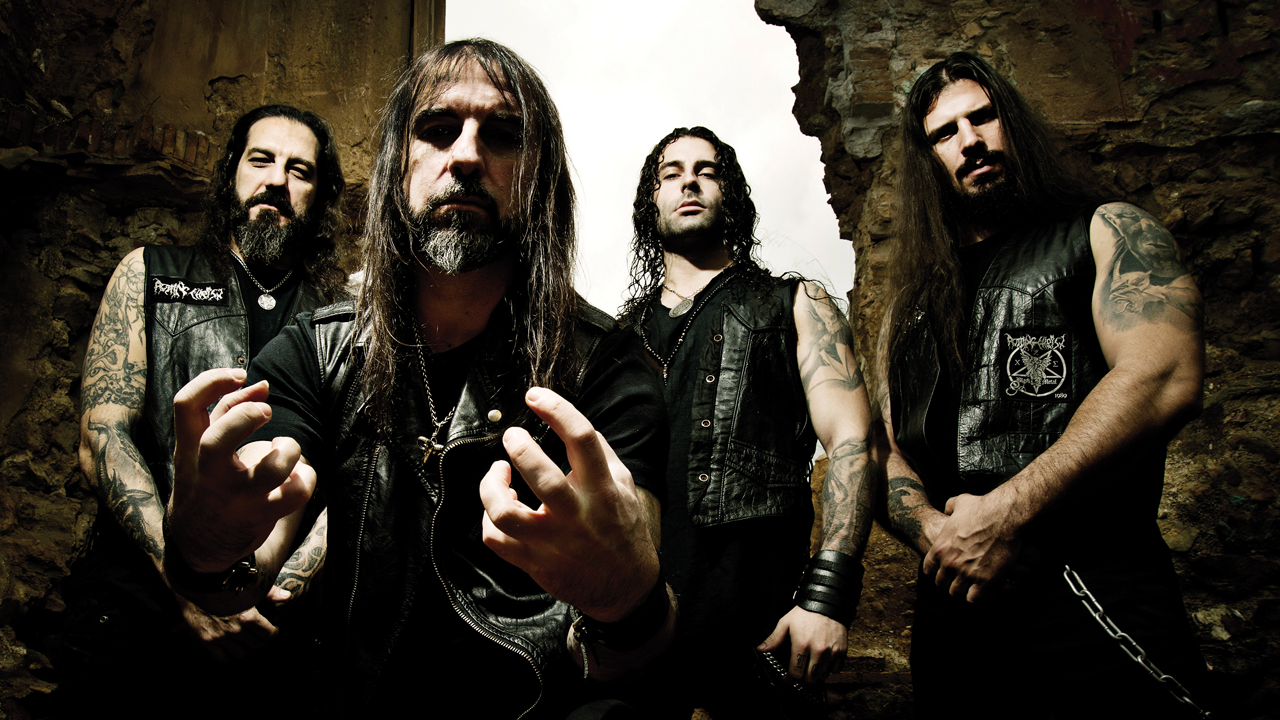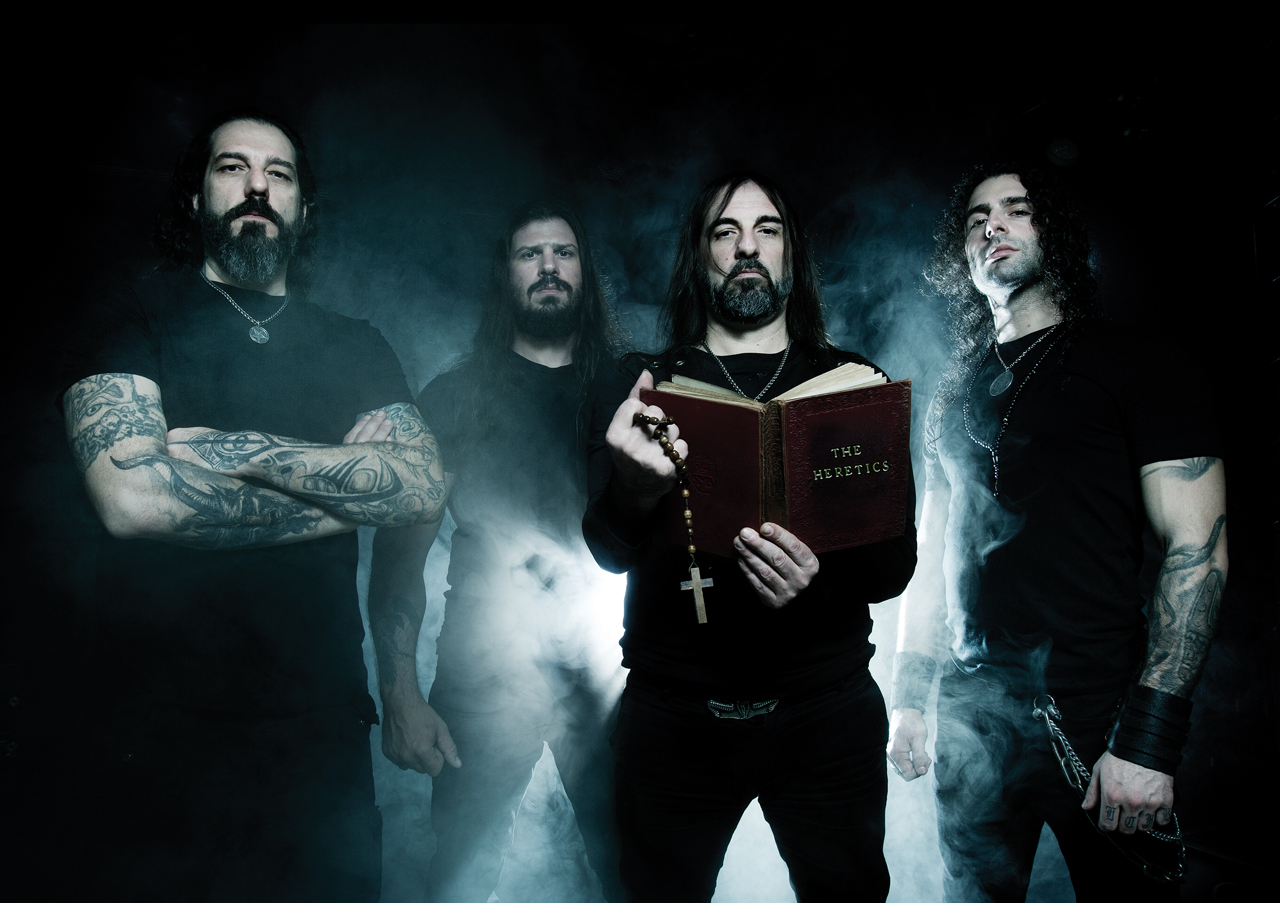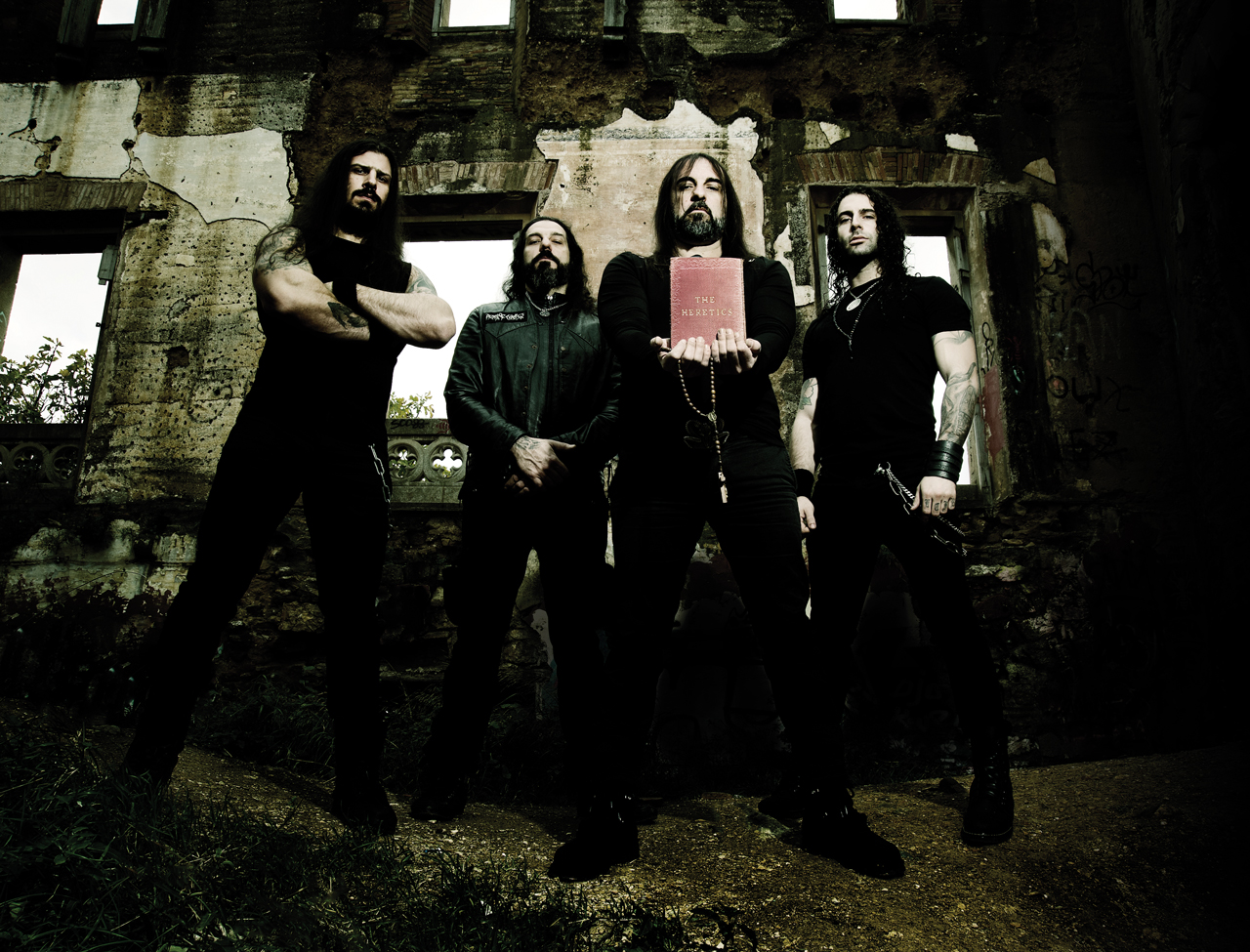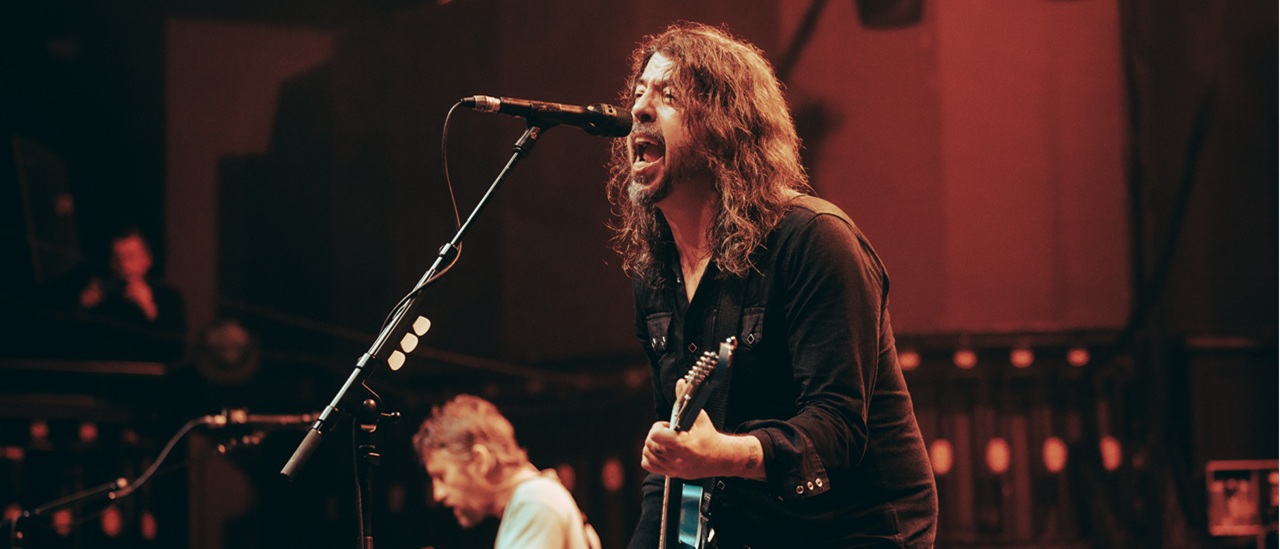Why aren't Rotting Christ the biggest band in extreme metal?
Their incredible albums have helped define black metal across three decades, and their legacy is only growing. Is The Heretics the record that's finally brought Rotting Christ to the masses?

Select the newsletters you’d like to receive. Then, add your email to sign up.
You are now subscribed
Your newsletter sign-up was successful
Want to add more newsletters?
When it comes to epic metal, there are mainstays like Bathory and Manowar, and modern missionaries such as Grand Magus and Primordial. But for heavy music at its most rousing, the standard-bearers are Rotting Christ.
Despite having an extreme name and being rooted in the spirit of black metal, the Greek stalwarts are one of the most musically accessible and exhilarating underground bands around today.
Over their 30-year career, which has been consistently helmed by Sakis Tolis, Rotting Christ have honed their sound so that’s it’s now instantly recognisable. One listen to their swooping, grandiose black metal that’s rich in melody and atmosphere, and you can feel the band’s spinetingling presence before Sakis even begins to sing.
“Playing with feeling is the most important thing when I compose,” Sakis explains. “And I think in the past few years we have really labelled our sound. Now, we mix the album in the same studio [with Jens Bogren at Fascination Street Studios]; we work with the same guys. In the past, we’d change these things.
Now, if you listen to Rotting Christ, you understand that this is Rotting Christ. It is important for us to have our own image in this scene.”
Last year, the band celebrated their 30th anniversary with a ‘best of’ compilation, Their Greatest Spells. Compiling it was a reflective experience for Sakis, as he meditated on the band’s past, remembered why they started and saw how far they’d come.
Beginning as a death/grind band in 1987, they’ve now released 13 albums, and since putting out ninth record Theogonia in 2007 they’ve been consciously developing that more epic side.
Sign up below to get the latest from Metal Hammer, plus exclusive special offers, direct to your inbox!
When we started the band, we wanted to be as evil as possible
Sakis Tolis
Prolific tourers with more than 1,250 shows under their belt, they’re well-established on the underground scene, and will headline the Sophie Stage on the Friday night of Bloodstock this year. But when they started out, their vision was a little different…
“We had quite honest, romantic goals when we started Rotting Christ,” Sakis says, thinking back to when he formed the band as a teenager alongside his younger brother Themis – both the last remaining original members – in their hometown of Athens.
“We just wanted to play like our idols – Venom, Bathory, Celtic Frost – to play some shows and maybe release one album. And to be as evil as possible. We wanted to destroy everything!
"Destroy the conservative people, have fights every night… I don’t know, when you’re 16 you want to destroy everything. We were a bunch of young kids who wanted to make a revolution.
"We chose the band name because back in the 80s, in southern Europe in particular, religion had power. We wanted to say, ‘Fuck Christ!’ Simple as that.
“Now, you could say that the music is the weapon: no violence, no extreme situations,” he continues. “The difference between the old Rotting Christ and the Rotting Christ of today is that back then we were rebels without reason.
"But now, we are rebels with a reason: we have one weapon and this is our art. I think this makes us more effective now than we were in the past.”

It’s hard to imagine the thoughtful, articulate and curious 46-year old Sakis of today as that unruly “rebel without reason” who dreamt up Rotting Christ three decades ago. But as the band matured and developed, so did their purpose, and as the saying goes, the pen is mightier than the sword.
“Every time I write an album now, I ask myself, ‘Do I have something to say?’ And I think that I still do,” Sakis explains.
“I don’t want to just make music. Some people might say, ‘What are you doing? Just have a good riff! And we do have good riffs. But it’s very important for me to also grab people, and to bring them along on our journey.”
From Greek myths and legends to history and cultures around the world, Rotting Christ’s lyrics in recent years have focused on educating and informing through elaborate themes and concepts.
And with their new, 14th release, The Heretics, they have hit on perhaps the most relevant lyrical concept to their journey yet: figures throughout history who have been judged by the church as heretics.
“I think that all these people in black metal, in extreme metal, we are like heretics,” Sakis explains. “To me, the spirit of black metal was to be against religion. It was the reason it was born.”
Within The Heretics’s rousing, cinematic swell – it’s no surprise to learn that Sakis is a fan of soundtracks, not to mention Manowar – he examines these figures, intoning their quotes over the 10 tracks.
There’s 18th-century French philosopher Voltaire in Fire, God And Fear (‘Those who can make you believe absurdities / can make you commit atrocities’), and English-born American political theorist Thomas Paine in The Voice Of The Universe (‘My own mind is my own church’) (see ‘What’s It Like To Be A Heretic’, overleaf, for more).
He also examines ancient religions like Zoroastrianism. When Hammer asks him to explain what it is, he is pleased.
“This is why I do this. I want to push people to learn,” he says. “I am open-minded to read about religion before I have my opinions, and sometimes they have some interesting ideas, but I believe that organised religion is the worst thing that exists.
"I think that our band name is more timely than ever: we are close to a religious war down here and you see so many terrorist attacks. Organised religion is something that Rotting Christ will always be against.”

The journey of a modern heretic isn’t without its obstacles. Rotting Christ aren’t about shock factor or controversy, but choosing that as their band name has caused problems.
Because of it, they’ve been booted off bills (most notably by Dave Mustaine in 2005), alienated potential listeners who expect them to be the most extreme band around, and have had run-ins with the law.
Their most recent altercation happened when Sakis and Themis were arrested upon arrival in Georgia last April, before fans and promoters intervened and they were released.
He still doesn’t know exactly why they were arrested, but it’s safe to assume that if they had been called ‘Jesus Saves’ they wouldn’t have been thrown in the cells.
“I’m still looking for what happened there,” says Sakis, sounding calm about the whole charade. “We were freaking out, and then they just let us go without telling us what happened. Maybe they just had some rogue information.
“It’s crazy,” he continues. “And I don’t need more troubles. I’ve enough taking care of everything in the band! But even if we have not opened many doors with that name,
"I’m satisfied with what we have done, and there’s a reason for this band’s existence. You know, following this path, you must be ready to face these situations. It should be like this.”
Our band name is timely, because we are close to a religious war
Sakis Tolis
This path is documented in their new book, Non Serviam: The Official Story Of Rotting Christ, which came out in late 2018 and was written with their friend and Hammer writer Dayal Patterson, who came up with the idea.
Though Sakis admits he never would have thought to write a book before, he discovered that working on it was therapeutic and vindicating: he knew the decisions he’d made and the path he’d taken were the right ones.
“It was like therapy,” he confirms. “I feel like in doing it, I became a better man: I remembered my past, I remembered who I am, and I feel like I can say now more than ever that I feel true to my own spirit.
"People have said to us about the band, ‘Are you still doing that?’ We have wondered if we should get proper jobs and play music just for fun. To control our life better financially. But we chose the risky way: that is the path that I always choose.”
“I don’t think any more about the future,” he admits, when asked what’s next. “I have already fulfilled my dreams. If I wake up one day and realise that I have nothing else to say to people, I won’t release anything else.”
Somehow, we doubt that will happen anytime soon.
The Heretics is out now via Season Of Mist and available to order here.
Hannah May Kilroy has been writing about music professionally for over a decade, covering everything from extreme metal to country. She was deputy editor at Prog magazine for over five years, and previously worked on the editorial teams at Terrorizer and Kerrang!. She currently works as the production editor for The Art Newspaper, and also writes for the Guardian, Classic Rock and Metal Hammer.

